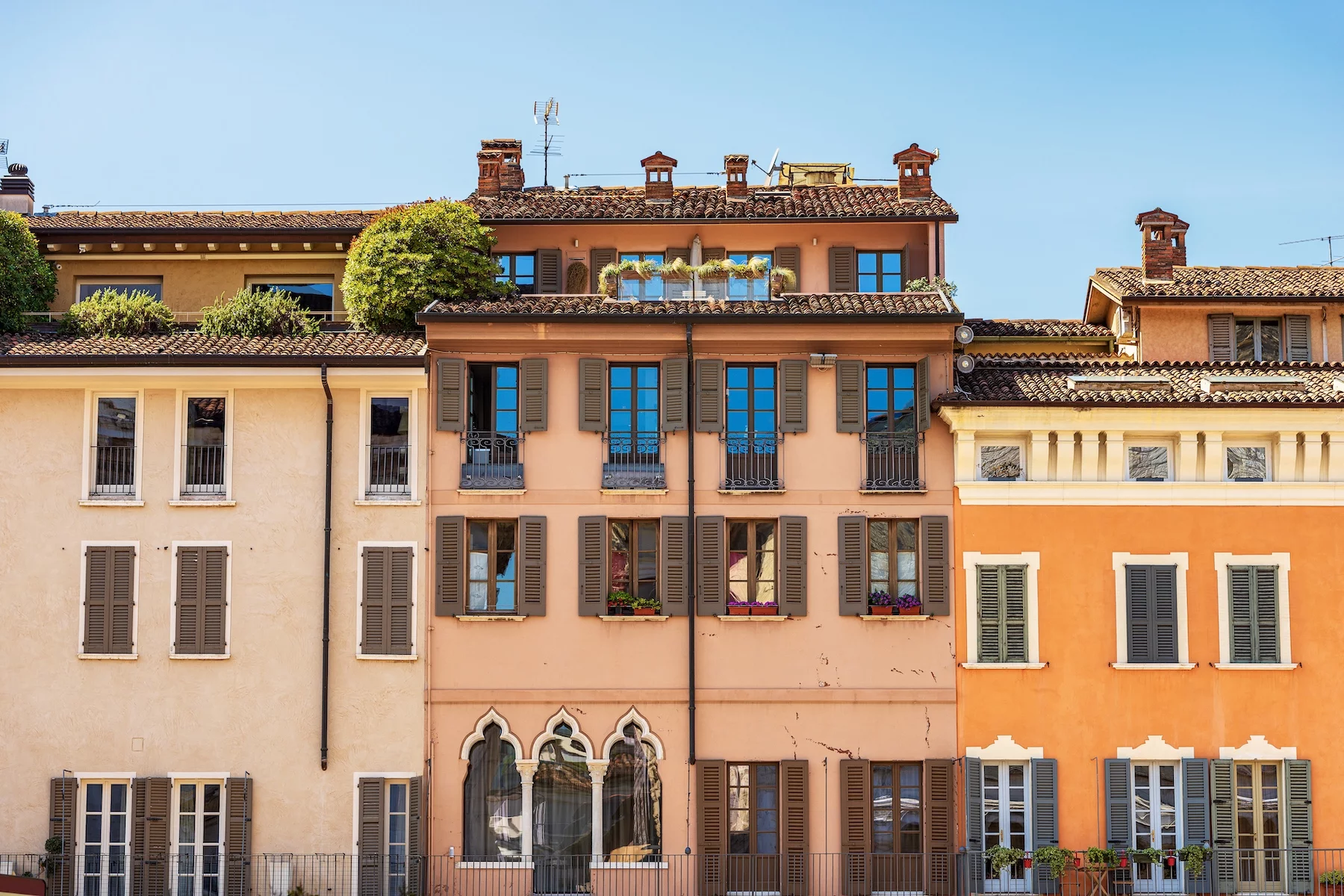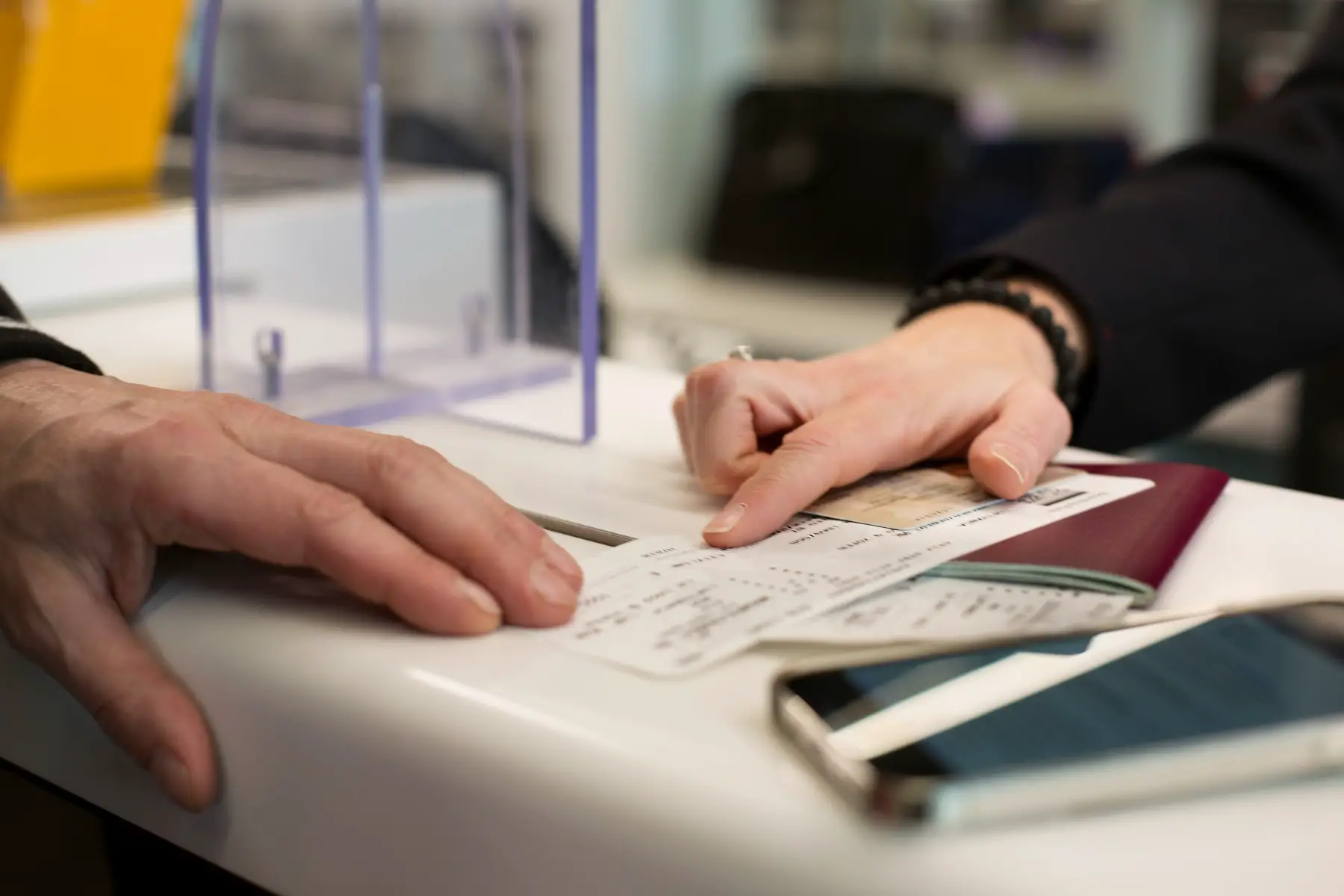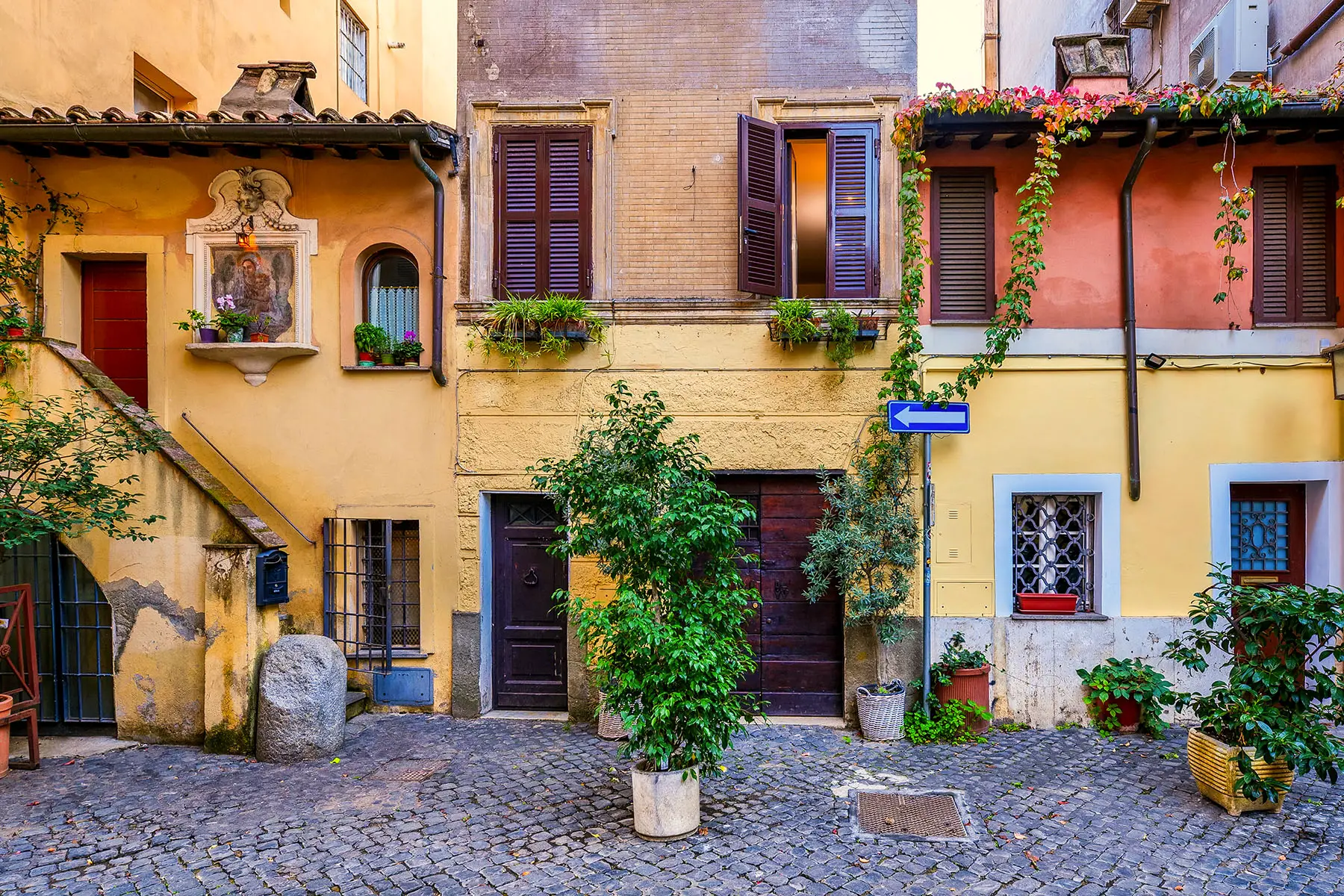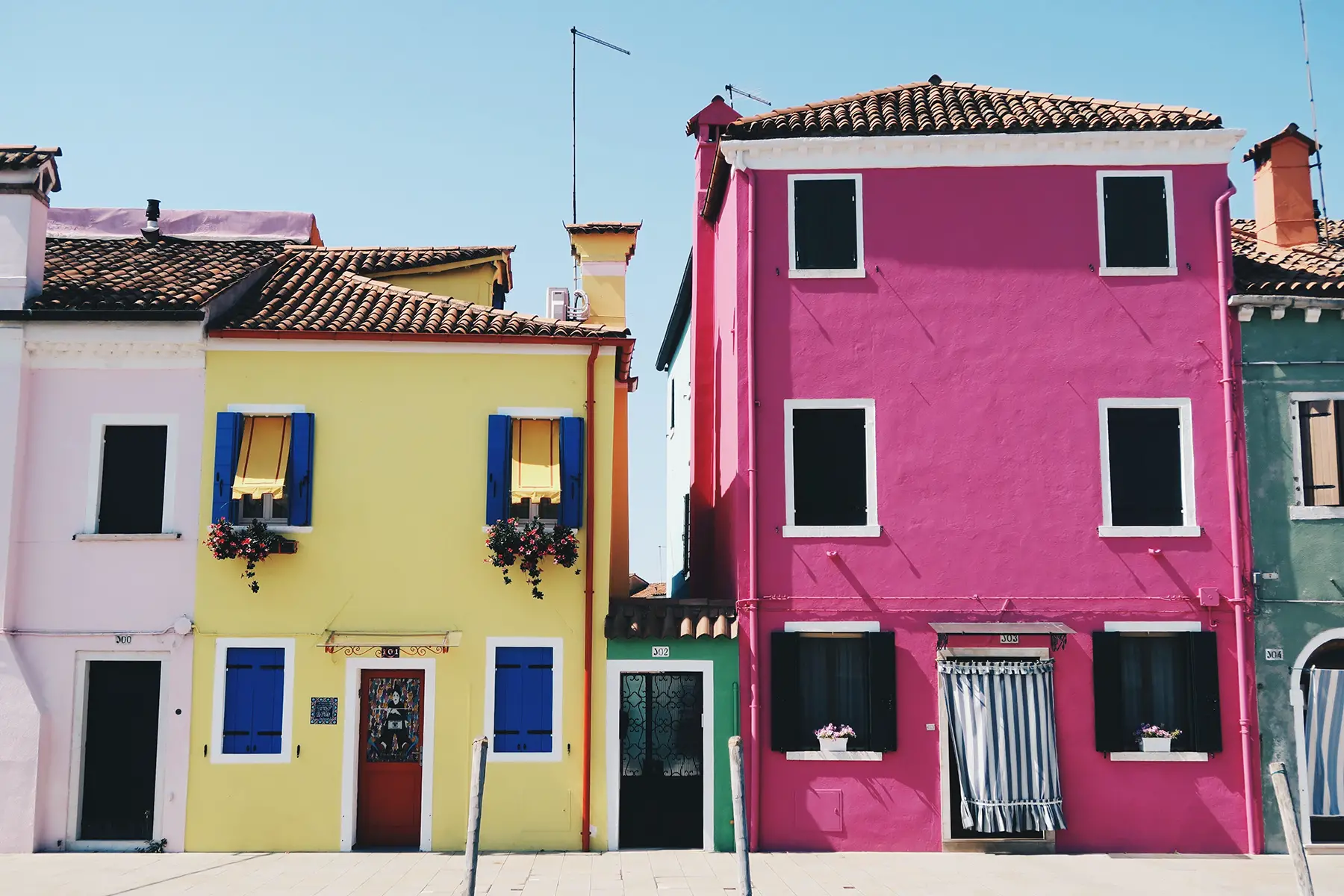With its thriving cities, historic architecture, and beautiful landscapes, Italy is a popular place for expats to put down roots and purchase real estate. However, while property prices are lower than in some European countries, the Italian home-buying process can be longwinded. Moreover, you will need to factor in a range of additional fees and taxes.
To help you navigate the Italian property market and get your head around any restrictions you might face, this article outlines the following:
- Homeownership in Italy
- Should you buy or rent property in Italy?
- Can expats buy real estate in Italy?
- The Italian property market and property prices
- The costs of buying real estate in Italy
- Financing a real estate purchase in Italy
- Finding a property in Italy
- The process of buying real estate in Italy
- Moving into your Italian property
- Building a new property in Italy
- Selling real estate in Italy
- Tips on buying a home in Italy
- Useful resources
MutuiSupermarket
How do you know you’re getting the best deal on your Italian mortgage? Check with MutuiSupermarket. Their online tool allows you to compare quotes from a huge number of Italian banks. Simply calculate your installments and choose the mortgage to suit your needs with MutuiSupermarket.
Homeownership in Italy
Italy has a strong culture of homeownership, with the majority of residents owning their own property. Data from Eurostat shows around 75% of Italians are homeowners, compared to a European Union (EU) average of 70%. Homeownership rates in Italy have also remained fairly consistent over the last 15 years, ranging from 72% to 75%.
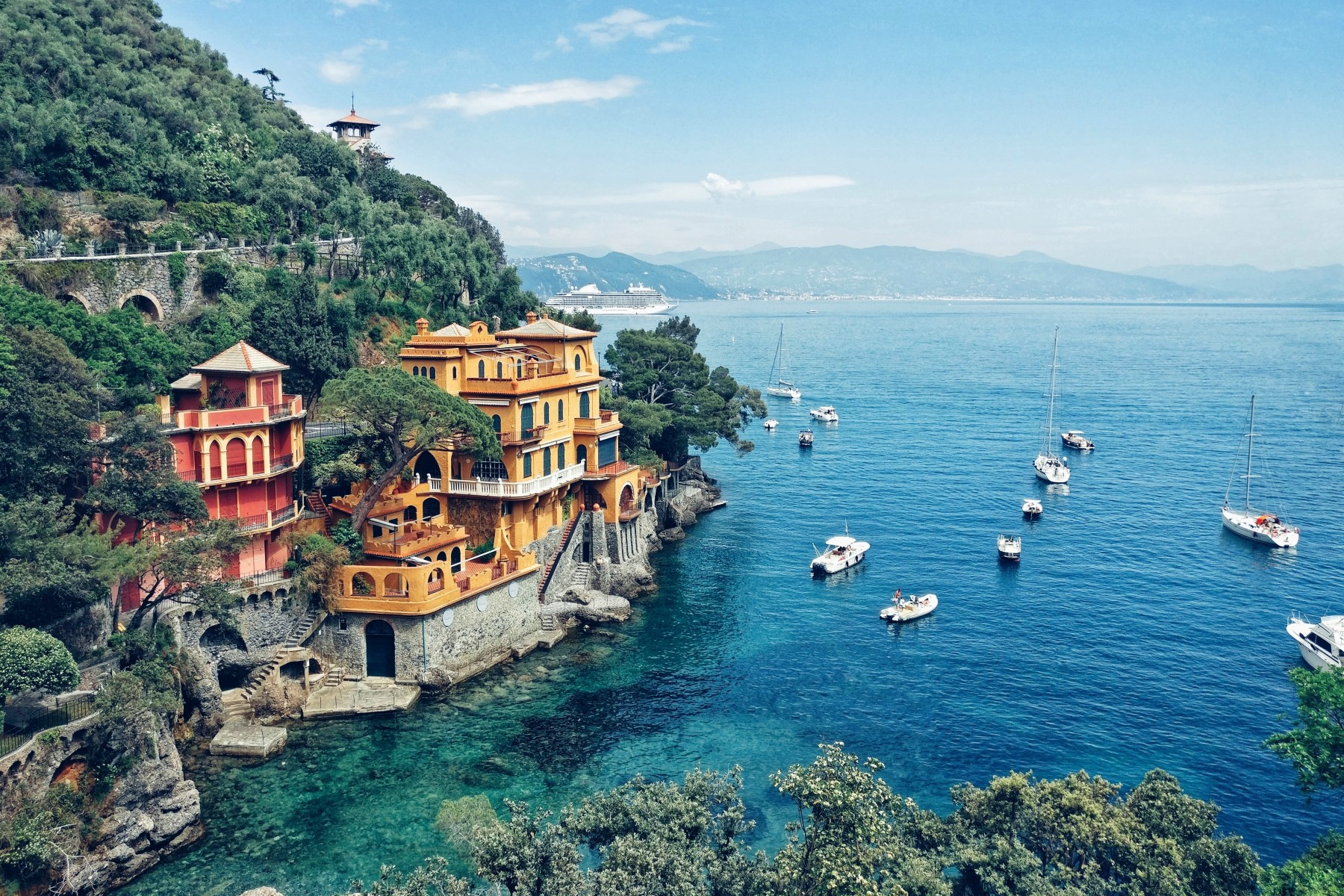
Older residents are most likely to own their own homes. In fact, 84% of residents aged 55 to 64 own a property, compared to just 48% of those aged 25 to 34. Property investment is also popular in Italy. Indeed, according to data from the Organisation for Economic Co-operation and Development (OECD), just under one in five Italians own at least one additional property.
Many people buying real estate in Italy do so with the help of a mortgage, and outstanding mortgage balances total around €400 billion.
Should you buy or rent property in Italy?
When you first move to Italy, you might choose to rent a property. This allows you to explore different areas and find your ideal neighborhood. It also gives you time to learn about the Italian homebuying process and property market.
Naturally, rental prices in Italy vary depending on the area you are looking in and the demand for specific property types at the time of buying. Data from 2022 shows that the average monthly rental price in Italy varied from €7 per square meter in the southern region of Molise to nearly €16 per square meter in Lombardy and the Aosta Valley.
Most rented properties are let directly by their owners. Some of them will use an estate agent to manage the property, while others will manage the let themselves. Notably, in Italy, it is less common to rent a property from a real estate company than in some other countries. Short-term rentals (ranging from one month to 18 months) and long-term rentals (with lease terms of up to four years) are commonly available.
Can expats buy real estate in Italy?
Fortunately, most expats can buy real estate in Italy with no restrictions. If you are an EU citizen or a citizen of a country with which Italy has a bilateral agreement, you are free to purchase a property. However, if your country does not fit these criteria, then a reciprocity rule applies. This means that if Italians can buy a property in your home country, then you can buy a property in Italy.
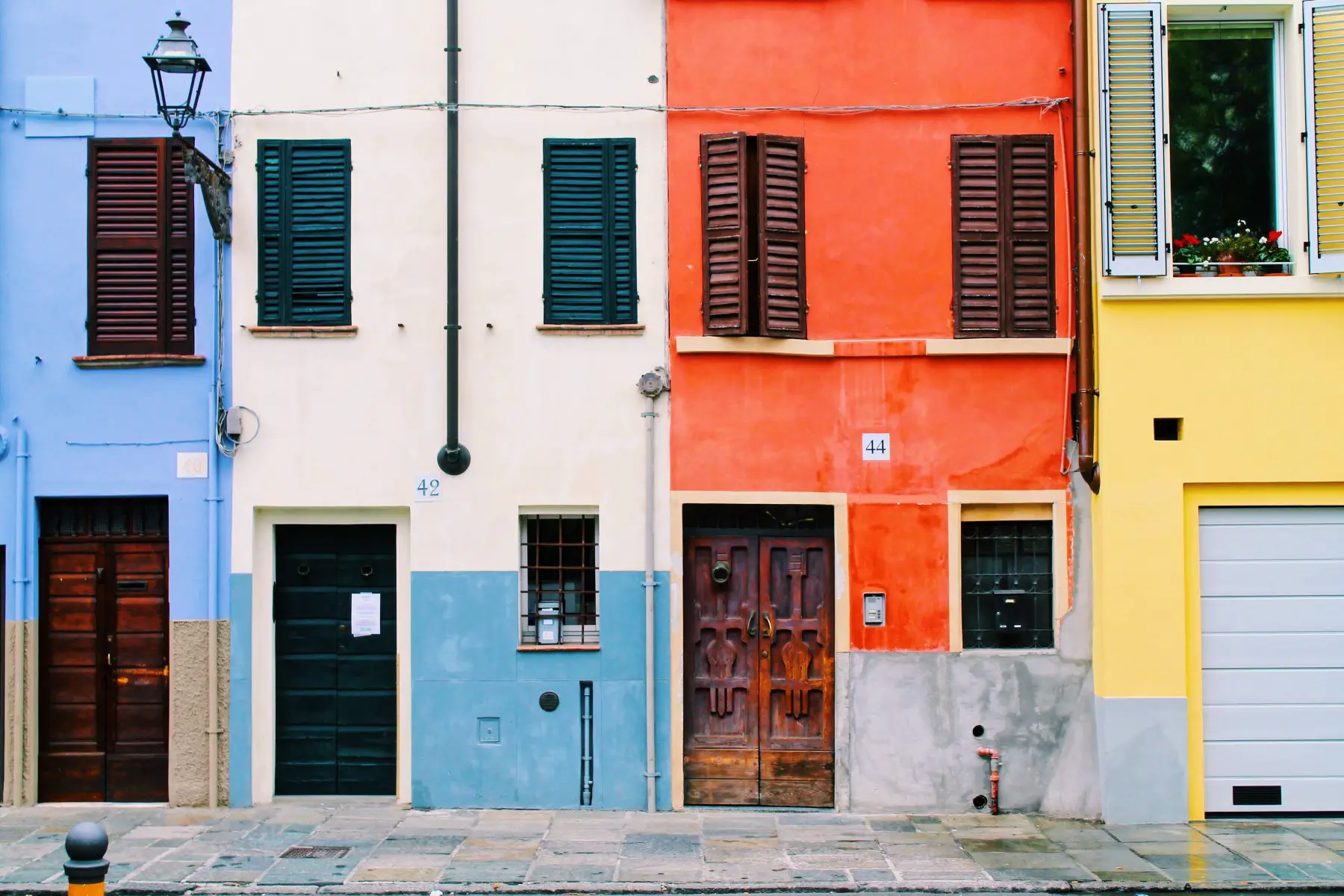
That said, if your country places limits on foreign purchasers, you will have to adhere to similar rules in Italy. Notably, if you are granted residency in Italy before buying a property, then none of these restrictions apply.
If you require a mortgage to buy an Italian property, you should be able to get one from an Italian bank. However, this will be subject to you meeting residency and financial requirements. This includes having a stable job and the proposed repayments not taking up too large a proportion of your earnings (more on this later). To buy a property in Italy, you will need to have an Italian bank account and tax number (codice fiscale).
For help with the visa process and fiscal matters, it’s worth enlisting the help of a full-service firm such as Moving2Italy.
Moving2Italy
When relocating to Italy, get expert help from Moving2Italy on taxes, work permits, and setting up a business. They also provide personalized support for immigration, social security, and residence, helping you navigate your new life abroad. For assistance with fiscal and immigration matters, contact Moving2Italy.
The Italian property market and property prices
Along with many of its European neighbors, Italy’s real estate market has faced several challenges in recent years. Up until 2020, house prices had been stagnating, with many old and neglected properties remaining on the market unsold. In 2022, however, house prices began to rise again. You can find out the latest house prices on Idealista and Immobiliare.it.
Reforms introduced by the Italian government have helped place the market on an upward trajectory. For instance, the 110% ‘superbonus’ building scheme brought about a significant interest in buying properties to renovate them. In addition, rural towns sold off old and dilapidated properties for a mere €1 to encourage investment. However, similar to elsewhere in Europe, Italy’s property market faces challenges caused by rising interest rates, which could impact how much homebuyers will be able to borrow.
Buying property in Rome
Rome (Roma) is Italy’s largest city by population and has some of its highest prices. You can expect to pay more than €3,000 per square meter when buying a home, compared to a national average of €1,800. Rome is split into 15 municipalities. These include family-friendly neighborhoods such as Monteverde, trendy student areas such as Trastevere, and upmarket luxury properties on Via Appia Antica.
Buying property in Milan
Prices in Milan (Milano) are the highest of any Italian city, and you can expect to pay around €5,000 per square meter when buying a property. Milan’s city center is dominated by apartments, while family homes are more commonly available in the outer suburbs.

Milan is divided into nine municipalities with areas such Brera and Monza remaining popular with families. Corso Como is one of the trendiest parts of the city, while Piazza del Duomo is the city’s most up-market area.
The costs of buying real estate in Italy
Aside from the purchase price of the property, there are a series of additional costs you will need to consider when buying real estate in Italy. All in all, you may need to budget an additional 10% to 15% on top of the cost of the property.
Wise
Buying a property abroad is a big step and involves important financial decisions. Wise, an international money transfer company, provides specialist support to help you navigate large international transfers and save on exchange fees. Fill out Wise’s online form today to find out how they can assist you.
An overview of the costs
- Estate agent fees: these are split equally between the buyer and seller. In total, they can range from around 3% to 8% of the purchase price.
- Notary (notaio) fees: the notary represents the state in the transaction. Fees are charged as a percentage of the sale price. This can vary from around 1% to 3%, depending on the value of the property you are buying.
- Registration tax (imposta di registro): this tax is payable upon completing your purchase. How much you will pay depends on the reason for the purchase and your status in Italy. Tax is charged at 3% for main residences or 7% for non-residents. The tax is charged on the declared value (rendita catastale) of the property rather than the purchase price.
- VAT/IVA (only on new-build properties): there is no registration tax payable when buying a brand new property, but you will instead need to pay VAT. This is charged at 4% for a main residence, but rises as high as 22% for second homes.
- Land Registry tax: this is charged as a fixed fee of around €170 if you are a resident, or 1% of the property’s purchase price if you are a non-resident or are buying a second home.
- Mortgage fees: if you are applying for a mortgage to finance your property purchase, you may need to pay a series of fees. These include an arrangement fee of around 1% to 2% and a fee of 0.25% to the notary for registering the mortgage (imposta sostitutiva). Many lenders also charge an additional administration fee of up to 1% of the loan and may require you to take out buildings insurance.
Additional costs of buying Italian real estate
The fees listed above apply in most transactions. However, there are a series of other costs you might need to consider.
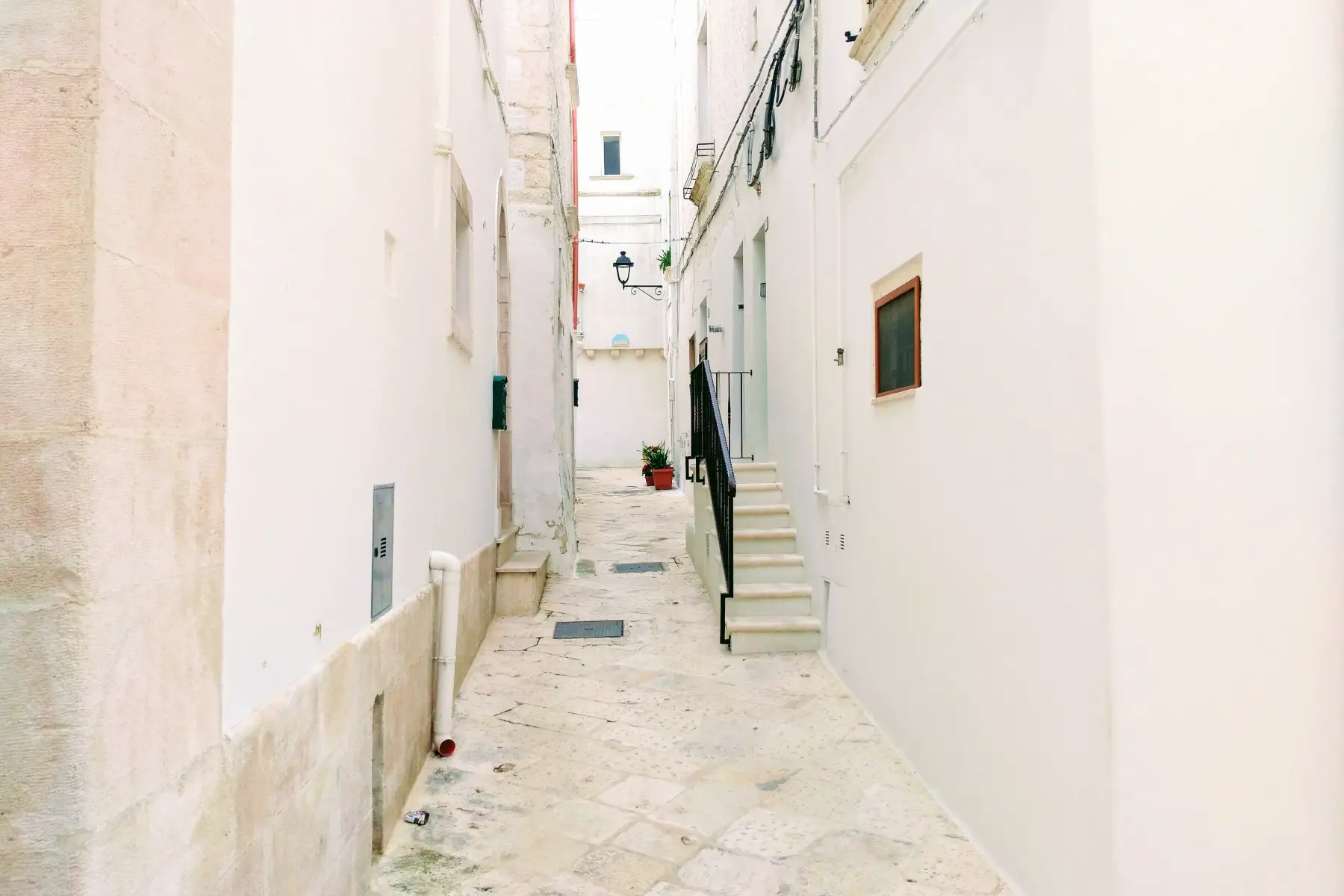
For example, you may wish to appoint a property surveyor at your own cost to inspect the home before you purchase it. This can alert you to any major issues with the property, which may require you to renegotiate the price or withdraw from the sale. Additionally, you may wish to appoint your own solicitor (avvocato) to oversee the legal aspects of the purchase.
Financing a real estate purchase in Italy
Fixed-rate and variable-rate mortgages are available in Italy. You can apply for a mortgage directly with the bank or through a mortgage broker. A broker can compare the different loans available from a range of banks and might be a worthwhile investment for expats who are new to the Italian system. You could also assess mortgage options online on a comparison site such as MutuiSupermarket.
It is important to bear in mind that banks in Italy can be cautious, so you will need to adhere to specific criteria to be accepted for a mortgage. Lenders will usually allow you to borrow a maximum of 60% to 80% of the property’s value. To be eligible for a mortgage, you will need to prove that your existing outgoings (such as any debts) don’t account for more than 40% of your monthly income. You will also need to prove that the proposed monthly mortgage payments won’t take up more than 30% of your income.
Finding a property in Italy
The majority of properties in Italy are listed through estate agents. Agents may operate nationally across the whole of Italy, or in a specific town or region. Some agents specialize in specific types of property; for example, new-build or luxury properties.
After doing some research into the area where you would like to buy a home and the types of property that might be available, your next step is to register with an estate agent. They should be registered with the Italian Chamber of Commerce (Camera di Commercio). There are also several other trade associations, including the AICI, FIAIP, and FIMAA (websites in Italian).
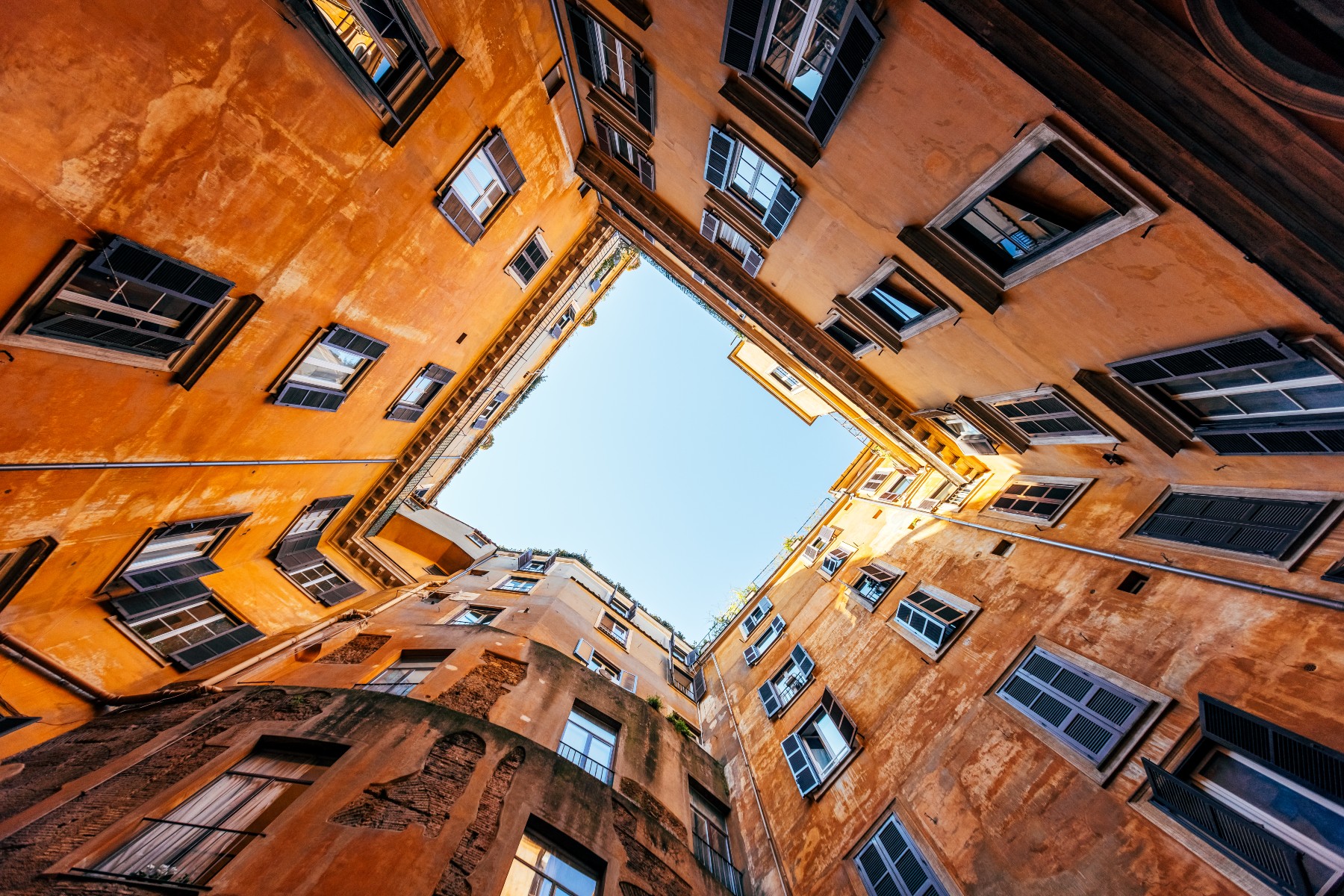
Estate agents generally advertise properties in their branches, via their websites, and on property portals, which allow house hunters to search for homes from a range of different agents in a specific area. The biggest Italian property portals are:
While it is becoming more common to find properties and estate agents in your area via portals such as those listed above, you can also find details of local agents by checking newspapers or property supplements in your local area.
When choosing an estate agent, it is important to find a licensed company that has a track record of success in the area. There are other factors too, for example, it can be particularly helpful if your chosen agent is familiar with working with expats and has English-speaking staff who can guide you through the process of buying a home.
The process of buying real estate in Italy
Buying a home in Italy can be fairly long-winded, as there are lots of steps to take before you can finalize your purchase. The key elements are as follows.
Find out about your mortgage options
If you require a mortgage, you should investigate your options before you start searching for a property. Doing so will allow you to get an estimate of how much you might be able to borrow and your likelihood of being approved. Italian banks won’t usually offer formal mortgage agreements in principle. However, you should be able to get a clear indication of whether you are likely to be accepted.
Register with an estate agent
Do some research on portals and register with an estate agent. As mentioned, using an estate agent with local knowledge and experience in working with expats can be key to finding a suitable property.
Find a property and make an offer
Once you have found a home that you wish to purchase, you will need to make a formal written offer. It is common for sellers in Italy to list their properties at slightly higher prices than they expect to achieve. Therefore, you may be able to negotiate to secure a better price. This will depend on the local property market. Once you have agreed on a price, you will sign a purchase proposal contract (proposta d’acquisto), which is provided by the estate agent.
Get a survey and appoint a solicitor
Next, you may wish to have a house surveyor (geometra/architetto) check the property to ensure that there are no major issues that require renegotiation. You should also appoint your own solicitor to check the legal background of the property and represent you in the remainder of the process.
Sign the sales contracts
Once you have successfully conducted your due diligence, the notary (notaio) will become involved. The notary is a neutral party and represents the state.
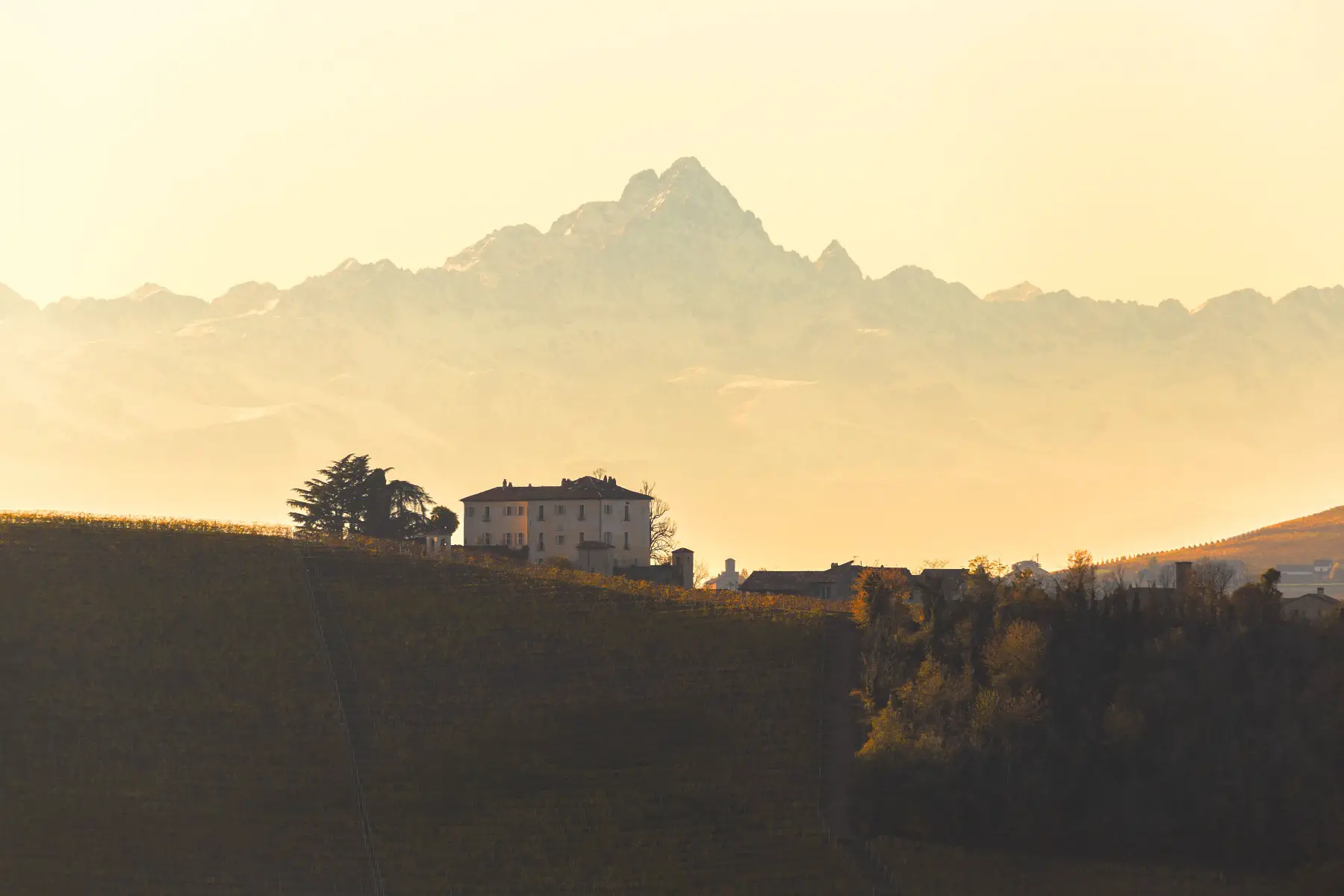
You will then sign a deposit agreement, which clarifies the terms of the purchase. At this point, you will need to put down a deposit of 10% of the purchase price. Notably, if the sale falls through due to the seller changing their mind, you will get this back. However, if you pull out of the purchase, you won’t.
Next is the ‘compromise’ (compromesso). This involves you signing a contract to confirm you will buy the property and paying a further portion of the sales price (this varies from 10% to 30%).
Complete the purchase and pay the required fees
When everything is complete, you can sign the property title deed (Rogito) in the presence of the state-appointed notary and the property’s seller. If you don’t speak Italian, you will need to employ a translator.
You will then need to pay the remaining purchase price and the notary will register the purchase with the Italian Land Registry. The notary will then collect the required taxes.
When it comes to paying fees, Wise has a specialist team to help move large transfers abroad and can save you money on exchange fees.
Moving into your Italian property
Getting insurance
There is no legal requirement to have home insurance when buying a property in Italy. However, it is likely that your mortgage lender will require you to take out buildings insurance as a condition of approving your loan. Your lender may also require you to have a life insurance policy to cover your repayments in the event of sickness or death.
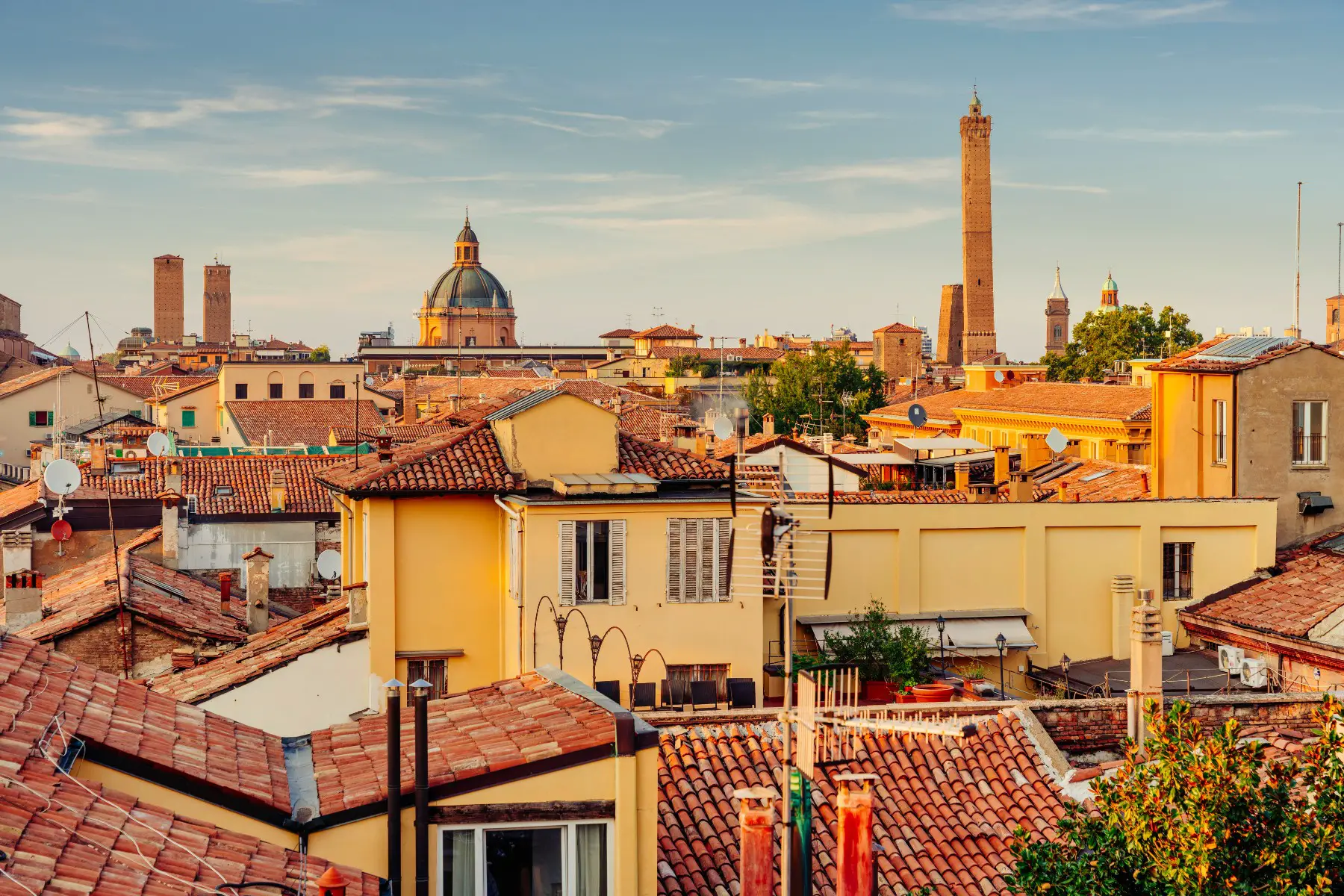
Buildings insurance policies should cover any damage caused to the exterior of your property: for example, due to fire or natural disasters. If you are buying a property in a shared block (such as a flat), this should be covered as part of the building’s policy.
It is also possible to take out a contents insurance policy, which protects you against theft of – or damage to – possessions within the property.
Utilities and telecommunications
When you move into your new home, you will need to take over utility contracts. When it comes to electricity, gas, and telecoms, you will be able to compare deals from different suppliers to find the best one for you. However, with water, your supplier will be designated by the district you live in.
Building a new property in Italy
It is possible to build your own property in Italy. However, you will need to do plenty of research before embarking on such a substantial project. The first part of the process is buying a building plot. How much this costs will vary depending on where in Italy you are buying. Registration tax will be charged at 9% of the value of the land you are building on. And if you buy the land from a company, you will need to pay VAT at 25%.
Before being able to build a house in Italy, you will need to be granted a series of permissions. You will need to consult your local Municipal Regulatory Plan (Piano Regolatore Comunale). This designates which land in the area can and cannot be built upon. You will also need to consult the Detailed Plan (Piano Particolareggiato). Finally, you will be required to apply for a building permit from your local municipality.
Embarking on a building project in Italy can be very complicated. Therefore, it is important to fully research the costs you can expect to pay and the timescales. You may also find it useful to take advice from an English-speaking expert.
Selling real estate in Italy
You can either sell Italian property through an estate agent or privately, although the first option is more common. As previously mentioned, you should choose an agent that is registered with the Chamber of Commerce.
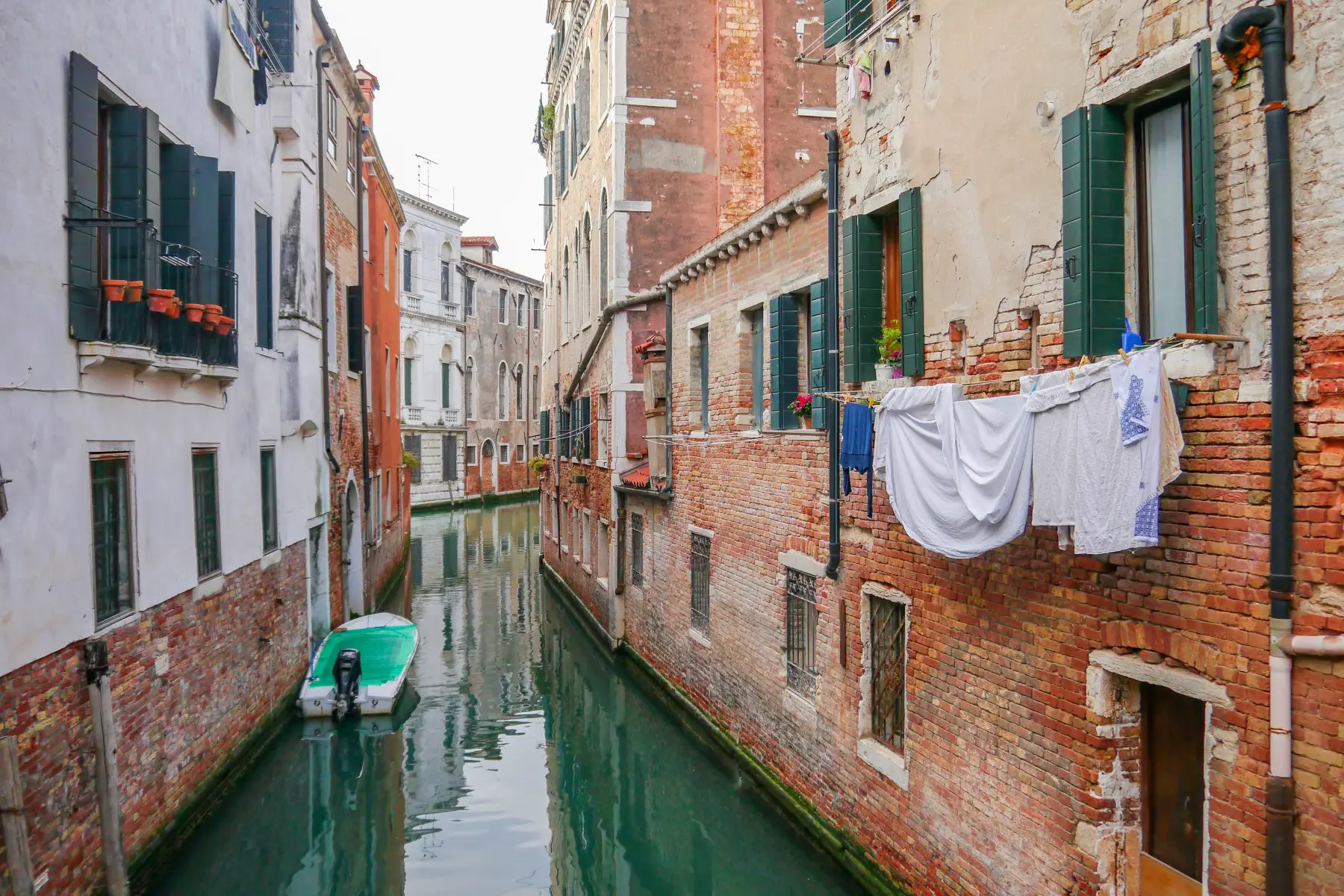
Estate agency fees are split between the seller and the buyer, and you will need to factor in additional legal fees. Sellers must also purchase an up-to-date energy performance certificate.
Capital Gains Tax (plusvalenza) may apply on your property sale. This tax only applies if you have owned the property for less than five years and it isn’t your primary residence. Second homes or rented properties sold after less than five years are subject to tax on their net profits at a rate of up to 26%.
Tips on buying a home in Italy
- Research different areas before settling on a place to buy a property. Consider renting first to ensure you like the area.
- Learn about house prices and property types in the area before viewing properties. If you are thinking of buying a property in need of renovation, brush up on the local construction regulations and learn about the assistance schemes available for green renovations.
- View potential properties at different times of the day to get an idea of things such as noise and traffic levels. Consider taking someone with you for a second opinion.
- Find out about your mortgage options. Explore what deals are available from different banks before choosing one and consider taking advice from a broker.
- Make sure your factor the additional costs of buying an Italian property into your calculations.


